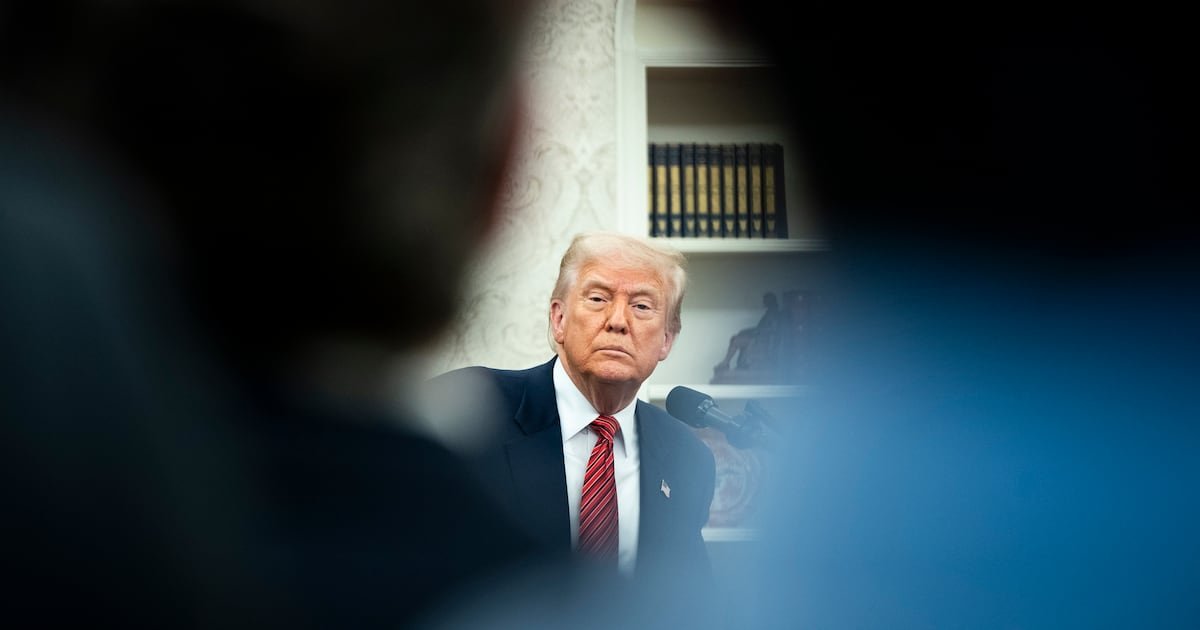China has warned trading partners against agreeing any deals at Beijing’s expense with Donald Trump in return for lower tariffs than currently threatened.
Asian countries, many of them with big trade relationships with China, face some of the steepest United States tariffs from the start of next month unless they agree a deal.
United States negotiators have pressed a number of countries to cut China out of their supply chains as part of the tariff negotiations. But an editorial on Tuesday in the People’s Daily, the official newspaper of the Communist Party, warned that China will hit back against any such deals.
“China firmly opposes any party reaching a deal at the expense of China’s interests in exchange for so-called tariff reductions. If this happens, China will never accept it and will resolutely counter it to safeguard its legitimate rights and interests,” the newspaper said.
Mr Trump this week extended the suspension of his “reciprocal tariffs” to August 1st while negotiations continue with trading partners. But he issued a new set of threatened tariffs in letters to a number of heads of government.
Japan and South Korea, Washington’s closest allies in Asia, both face a 25 per cent tariff, on top of the 10 per cent baseline tariff that applies to almost all countries and is already in force. Laos and Myanmar face 40 per cent, Cambodia and Thailand 36 per cent, Indonesia 32 per cent and Malaysia 25 per cent.
The US has already agreed a deal with Vietnam that imposes a 20 per cent tariff on all Vietnamese goods but slaps 40 per cent on exports judged to have been rerouted from China through Vietnam to the US. White House economic adviser Stephen Miran described the deal, which removes all tariffs on US exports to Vietnam, as fantastic.
“It’s extremely one-sided. We get to apply a significant tariff to Vietnamese exports. They’re opening their markets to ours, you know, applying zero tariff to our exports. It’s a fantastic deal for Americans,” he said.
China, which initially faced tariffs above 100 per cent, agreed a framework for negotiations with the US in London last month that reduced the tariffs on both sides pending a broader agreement. Since then, China has allowed the export to the US of rare earth minerals while the US has eased restrictions on the export of some semiconductors.
“The London Framework is hard-won. Both sides must implement the relevant consensus and continuously accumulate conditions for the final resolution of the dispute,” the People’s Daily said.
The editorial described Trump’s unilateral tariffs as “a typical unilateral bullying practice” that undermined the international, rules-based trading order built around the World Trade Organisation (WTO). And it warned other countries that any deals with Trump that undermined that system would encourage the US president to persist with his capricious approach to tariffs.
“Any short-sighted practices that damage this system will harm all parties’ long-term interests. No one can be immune to the impact of unilateralism and protectionism,” it said.
“Once the bottom line of principles is breached, blackmail will intensify, all countries will become victims, and the institutional environment for global development may suffer irreversible damage. The stormier the weather, the more strategic sobriety, unity, and coordination are needed.”
China joined other countries at a Brics summit in Rio de Janeiro this week in denouncing Trump’s threat to impose extra tariffs on countries that align with the informal group of mostly Global South nations. Brazil’s President Luiz Inácio Lula da Silva, who hosted the meeting, said at his closing press conference that the US president’s threats were irresponsible.
“The world has changed. We don’t want an emperor. We are sovereign countries,” he said.





